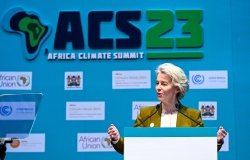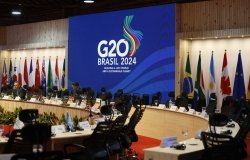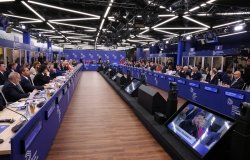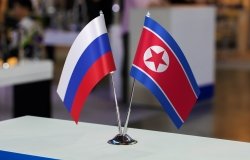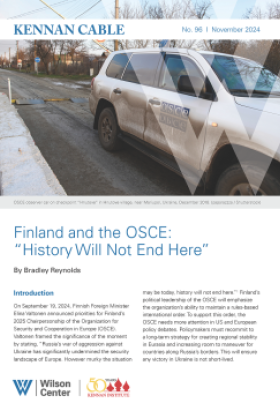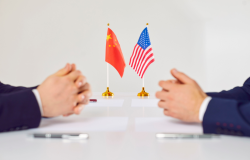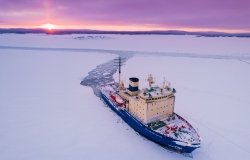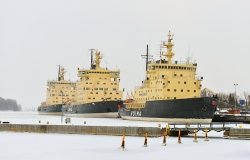What is the Added Value of the European Political Community?
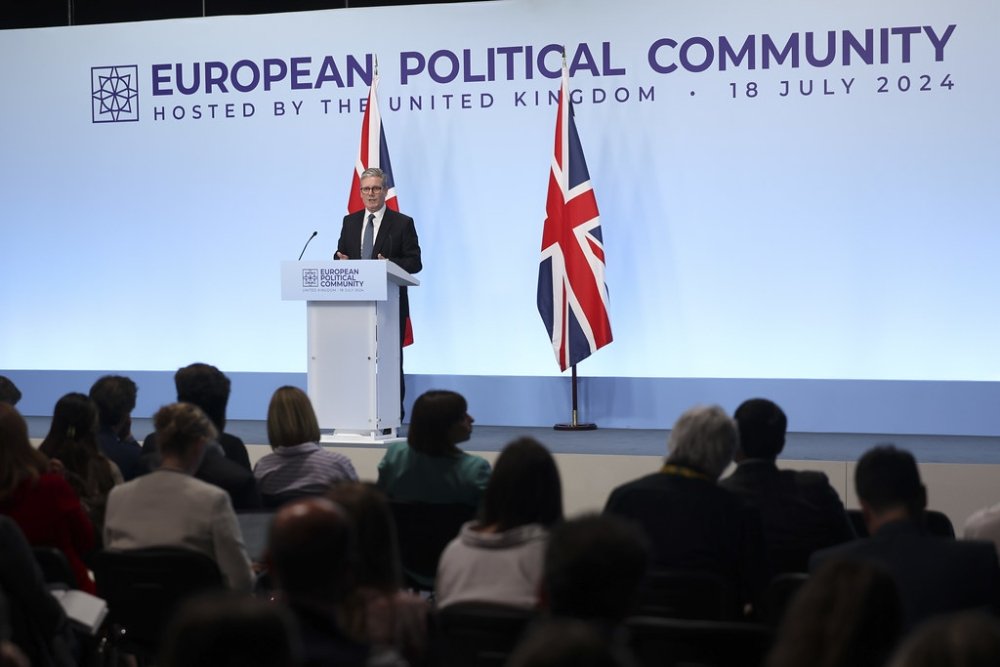
Flickr / No. 10 Downing St / Tim Hammond
On July 18, the European Political Community (EPC) met at Blenheim Palace in Oxfordshire, the United Kingdom for its 4th meeting since its creation in 2022. With well-established 20th century organizations, such as NATO, OECD, OSCE and EU with fine buildings and secretariats to manage business, what is the added value of the EPC?
French President Emmanuel Macron founded the EPC in 2022 to meet the challenges of Russian expansionism and the slow pace of accession for those nations seeking EU membership. Some called the EPC a 2nd best option to EU accession. Others saw the value of broadening the dialogue on security, democracy and energy access. Chairmanship of the bi-lateral meetings depends upon the voluntary offer of a host nation–the United Kingdom on July 18. There is no central secretariat or permanent headquarters. Instead, governments commit to participate and contribute according to the relevant themes for discussion. The advantage of this less formal structure is the flexibility given to national leaders to engage in community and bilateral discussions in the working groups and on the sidelines of the summit.
This July, security in its broadest sense from hybrid warfare with its misinformation and disinformation, increased factionalism from strengthened right wing nationalist political parties and the continued vulnerability to energy shortages will be discussed. In the first EPC meeting in Prague, the UK’s offer to expand the grid for North Sea gas demonstrated that the EPC was more than a talking shop. It could take constructive actions to strengthen cooperation across Europe and beyond.
As a non-EU member eager to strengthen its security ties with Europe, the new Labour government has demonstrated leadership by inviting a broader set of players from the OSCE, the Council of Europe to Azerbaijan. Neither Russia nor Belarus are invited. Given this breadth, how does the host country avoid this becoming merely a platform to express concerns and aspirations. Pragmatic outcomes are needed.
Three areas of action can be identified:first, expansion of the North Sea electrical grid. Second, development of a strategy to consider European relations with Russia after the Ukraine war. Third, American isolationism under a potential Trump presidency. The development of the electrical grid, bringing North Sea energy to east and south-east Europe would be a clear means of sharing a natural resource so necessary for Europe. It would also demonstrate the UK’s commitment to work with Europe, while remaining outside the single market. Second, preparations on a Russia strategy have already begun, and serious dialogues are needed with all invitees, including Hungary, Serbia and Azerbaijan on a comprehensive way forward, noting that the USA will not be present. Third, commitment now to coordinate on policy with regard to China trade and Ukraine support can help reduce divisions that would arise should transatlantic dialogue become more focused on bilateral relations in the future.
Attendance at the EPC Summit indicates the shared value that the members have in this type of gathering. A shared commitment to protection against an expansive Russia, territorial integrity and a greater degree of European unity in the face of an unpredictable US demonstrate that the EPC is more than a platform for a geo-political security environment. The EPC acts like a civil-society organization, but this meeting should demonstrate that it delivers public goods in the form of secure electricity and diplomatic advances to protect citizens against unpredictable continental powers.
The opinions expressed in this article are those solely of the author and do not reflect the views of the Global Europe Program.
About the Author

Diana Villiers Negroponte

Global Europe Program
The Global Europe Program is focused on Europe’s capabilities, and how it engages on critical global issues. We investigate European approaches to critical global issues. We examine Europe’s relations with Russia and Eurasia, China and the Indo-Pacific, the Middle East and Africa. Our initiatives include “Ukraine in Europe” – an examination of what it will take to make Ukraine’s European future a reality. But we also examine the role of NATO, the European Union and the OSCE, Europe’s energy security, transatlantic trade disputes, and challenges to democracy. The Global Europe Program’s staff, scholars-in-residence, and Global Fellows participate in seminars, policy study groups, and international conferences to provide analytical recommendations to policy makers and the media. Read more


